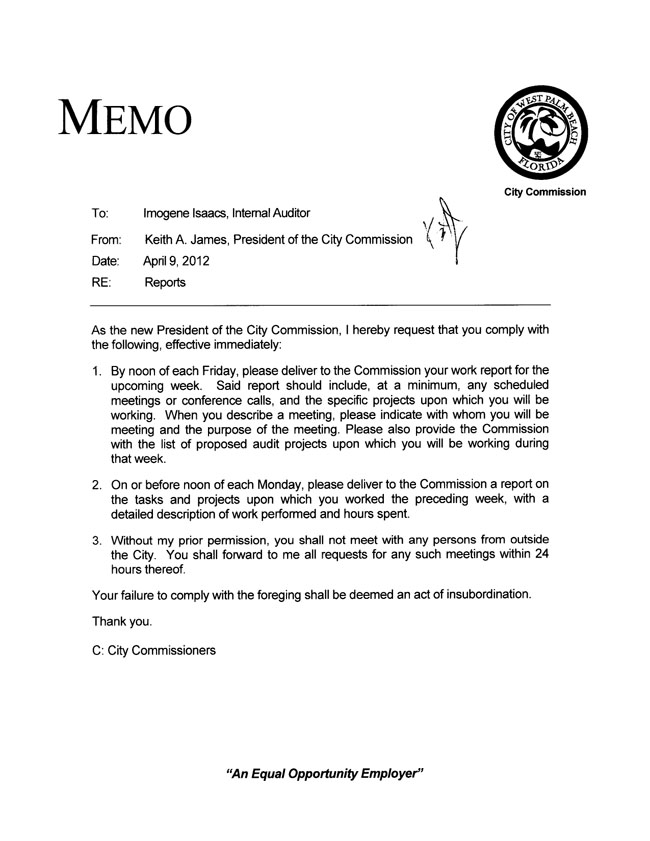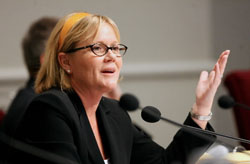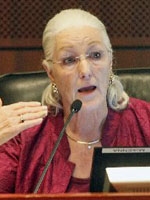Holidays Not So Happy For All WPB Residents
The City of West Palm Beach certainty jumped into the Christmas Holidays with sand sculptures, and decorative lighting making downtown and the waterfront a festive sight to behold. On December 21st It was a joy to see families with their children, and Christmas is all about the children, enjoying the sights and a visit from Santa, Santa’s helpers, elves and a moving kiddie train.
What was noticeably missing was the smiling faces of black children with very few seen in attendance. The vast majority of children, enjoying the sights and sounds were Caucasian.
The city invited all families and children to join in, so why the low attendance of black children? If you have a question, like I did, and want an answer you have to go into a black area and look for parents with children. A trip to Blum Park, 23rd. & Spruce Ave where men sit and drink out of paper bags on a daily basis, while children play on the swings and their mother’s hover over them, is where I found mothers willing to answer the question. “Did you go downtown to the Christmas festivities? All I received were “no” answers. It seems the main reason the mothers didn’t attend with their children was due to the fact they didn’t have transportation.
OK that took me back because I never thought of transportation. You don’t think when you jump into your car to run to the Doctors, Publix’s, or something as simple as lunch with a friend. There are thousands who can’t afford the luxury of an automobile.
Blum Park is located in a poorer section of WPB and is inhabited by African Americans. Children shouldn’t lose out due to the fact their parents have no transportation to drive their kids to the festivities.
Now travel back in time and consider this. The extension of State Road 7 which the city agreed to extend years ago, when an agreement was reached to allow gated communities such as Ibis (where Mayor Muoio resides) to become part of WPB. Now it seems the city is reneging on the extension, and held a rally at the South Florida Fair Exposition Center, where Mayor Muoio and City Commissioners approved 4 charter buses, paid for by the taxpayers, to take residents from 3 western gated communities to the fair grounds while one bus picked up residents at city hall, all to protest the extension.
The city of WPB have at their disposal, 5 trolleys, with 2 in continuous operation, while 3 trolleys sit parked at the garage. The residents ride, with no cost to them, on the “Yellow” line which travels to the Kravis Center, City Place, and the Clematis St. Waterfront. The “Green” line travels Railway Station, Clematis St. Dixie Highway, and Okeechobee Blvd.
These trolley’s do not venture into the poorest of poor neighborhoods, meaning black neighborhoods. The city of WPB could not free up a shuttle or 2 to take the children from these black neighborhoods to see Santa and ride the train? These African American neighborhood’s are not, and have never been, a priority to the city of West Palm Beach, or they never would have allowed them to deteriorate to the degree they have. Shame on them, and shame on the two African American Commissioners, Ike Robinson and Keith James for not doing anything to help the little Black children be able to sit on Santa’s lap and whisper to Santa their Christmas list.
City Spokesman Threatens Resident With Jail!
Below is a statement read at the WPB City Commission meeting held on 12/9/13, and is a follow up on the commission meeting held on 11/25/13. My pictures were city related, city business and reflected concerns about deplorable conditions in a residential area within a stones throw from both downtown and City Place. Mr Cohen, city spokesman,and Public Information Officer gave the orders the camera was to stay on me, and no photos of the neighborhoodhood were televised to the home audience. I question if Mr. Cohen took this upon himself or was taking orders from Mayor Muoio. When I requested I be allowed to reshow the pictures Mayor muoio advised me I had 48 seconds of time left. Definately not enough time. Censorship at it’s best.
“Nov.25 I showed the mayor and commissioners pictures of the northwest Historic District of the city and focused on an area within 5/10 of a mile from city hall. This is the area Mr. Waters, representing the Urban Group, expressed a feeling that the citizens in the Northwest Historic District, Tamarind and Rosemary Avenue, had not been afforded advantages to having economic access or social justice to improve their condition. He also stated, those areas have been historically left behind since the areas were developed. Mayor Muoio and Commissioner Mitchell were offended by his presentation and remarks. My pictures proved Mr. Waters correct in his assessment. Of course the city wouldn’t want these pictures made public and they were not.
I e-mailed the city that I intended to show these pictures and needed help with the equipment. Elliot Cohen approached me before the meeting and requested the thumbnail, which I handed him. Mr Cohen attempted to leave chambers and I stopped him and asked for my property back, telling him I will place in the machine when my time came for public comment. Mr. Cohen told me he would place it in the machine, and I allowed it. Mr. Cohen again was leaving chambers and I again approached him and told him I was pulling my thumbnail. Mr Cohen advised me the pictures would not be shown.
Mr. Cohen stated I would be removed from the meeting, and I told him he better be prepared to have me arrested, which he assured me “I will have you arrested.” I became very angry and walked away, retrieved my equipment, and sat down. Mr. Cohen approached me and I asked him to leave me alone 3 times which he ignored, and continued speaking to me. The 3rd. time I raised my voice. You Mayor Muoio were standing on the dais and never looked up. Debbie Fennie who was in the back of chambers heard me and approached us and told Mr. Cohen I asked to be left alone, and why didn’t he walk away. Ms. Fennie made the request of Mr. Cohen a total of 3 times before he finally walked off.
Will the city allow me once again to show the pictures to be viewed by the home audience.
These pictures and the accompanying story can be seen on WPB Gov Watch.”
What the City of WPB Don’t Want Residents To See!
Below is my comment that I read at the city commission meeting held on 11/25/13. I received an e-mail from a friend this morning and he liked my presentation, but wondered why the city didn’t show the pictures I presented but kept the camera on me the entire time.
There were approximately 10-12 residents in the commission chambers but I hoped to reach the audience watching the meeting’s in their homes.
My intention was to show the public how badly the homes have deteriorated to the point where repairs are not possible. This section of the city know as the Northwest has a large population of African Americans, many of who have given up the idea of a clean, decent place to live. Other residents still hoping for a city to recognize them have created a “Wall of Freedom” and residents have written their thoughts and thoughts of other’s such as Martin Luther King in order to keep hope alive. Hopefully you will take time to view the pictures. Below is the statement that was read to the mayor and City Commissioners.
“At a recent CRA meeting Mayor Muoio & Commissioner Mitchell were offended by Mr. William Waters, who was representing The Urban Group, when he responded to a question “What area of the city do you see as the greatest challenge if you are selected?”
Mr. Waters expressed a feeling that the citizens in the Northwest Historic District, Tamarind Avenue and Rosemary Avenue, had not been afforded advantages to having economic access or social justice to improve their condition. He also stated, those areas have been historically left behind since the areas were developed.
The Northwest section that Mr. Waters spoke of is 5/10 of a mile from city hall. Lets see if the mayor and commissioner had reason to be offended. (SHOW PICTURES)
The city did not cause this blight, but this city is responsible for allowing a section of the city to develop into what it has become by ignoring the problem and allowing it to continue.
Is the CRA plan to eventually take this property as the city did with the property of homeowners in another section of the Northwest in order to build City Place, with a large turnover of businesses and is now in foreclosure.
CRA under the direction of RMA owned and operated by Kim Briesemeister, who is responsible for City Hall 150 million, the waterfront 30 million, and the loss of 2 million dollars wasted with Digital Domain, which that loss can be shared with Commissioner Mitchell.
If this mayor and city commissioners are satisfied with RMA and Kim Briesemeister way of doing business then by all means award her the contract which she has already been told was her’s.”
[easyrotator]erc_90_1385502050[/easyrotator]
CRA & WPB
On Nov.5,2013 @ 3:00 PM, when most residents are working, the city held a Special City Commission Meeting on CRA Outsourcing Presentation. Unfortunately there were 6 residents in attendance, which is the norm, and the plan for afternoon meetings.
Three companies, CH2M Hill, The Urban Group, and RMA were the finalist. The Urban Group was quickly eliminated when Mr. William Waters had the courage to question city leadership, and told the mayor and commissioners the African American community has long been ignored.
That left CH2M HILL, a global firm, and RMA (Redevelopment Management Associates) run by Kim Briesemeister, who headed the CRA from 2004 until she resigned in Aug. 2013 in her bid to take over WPB CRA which has a budget of 28 Million dollars. In 9 years here are a few things Ms. Briesemeister has accomplished for the city.
City Center: Built the library and garage component of the the new city hall. Residents, upset with the project, and many believed the residents should be allowed to vote on the issue, sued the city. The courts agreed, let the residents vote. Then mayor Lois Frankel, obviously aware that the residents were not able to make an intelligent decision, rushed to finished the project and denied the residents the right to vote on the project.The city lost in court to a citizen’s alliance group that cost taxpayers $300,000 in legal fees.
Waterfront: Spent $30 million dollars revamping the waterfront. Residents should visit the waterfront and witness the lack of use. Yearly Boat Show uses the area.
Northwood Village: Turned a blighted area in Northwood into a shopping and restaurant destination. Taxpayers are paying $12,500/month for Wine, Cheese & entertainment in this area, and taxpayers have been paying for 5-6 years. If you visit this area, walk one street over to the city’s Blum Park and join the men drinking out of brown paper bags. The city will not supply bags or beverage.
Digital Domain: The city gave prime city land valued at $10 million, along with $2 million to Digital Domain in a partnership with FSU (Commissioner Mitchell’s Alma Mata) for a digital animation college.It was reported in the PB Post that Kim Briesemeister approved the deal between the city and Digital Domain, and said CEO John Textor was fully vetted. On Sept.10,2012 Commissioner Kimberly Mitchell, Kim Briesemeister, and City Attorney Claudia McKenna drove to John Textor’s home for a private meeting. On Sept.11, 2012 Digital Domain filed for bankruptcy. On Sept.13,2012 Ms. Briesemeister home was burglarized, and two laptops were stolen along with two briefcases filled with paperwork. A week later another burglary and more computer equipment were stolen. Ms. Briesemeister stated it was a private matter and refused to discuss the matter. It leaves one to wonder if the computer’s and briefcase’s contained information on Digital Domain, lost forever.
=
Why WPB Needs Your Taxes!
The taxpayers of WPB pay $12,000.00 a month for Federal lobbyist Holland and Knight to represent the city. Commissioners James and Robinson constantly travel to League of Cities running behind Holland and Knight, spending tax dollars and cannot tell the residents paying the tab what they have accomplished. Commissioner Robinson once reported on a trip from Washington, DC. Mayor Muoio wrote letters to Representatives Frankel, Murphy and Hastings, and none of the 3 received the letters. Frankel & Murphy have offices on Military Trail, and Hastings has his office in Ft. Lauderdale. It cost the taxpayers $5,221.57 to learn that letters were not delivered in Washington. Waste!
Commissioner James traveled to Hollywood Florida (100 miles round trip) and spent 2 nights in a hotel and it cost the taxpayers $845.56 When the PB Post questioned him on the motel stay he claimed early morning meetings. After receiving a Public Records Request I learned every meeting was held in the afternoon except for the Continental breakfast which was 7-9 AM. Commissioner James lied, and took advantage of the taxpayers. At a city work session 7/1/13 Commissioner James mentioned the travel budget was depleted and he and Commissioner Robinson traveled at their own expense on a second trip to Washington DC. In reality the taxpayers paid a total of $675.00 air fair. Another lie by Commissioner James.
Commissioner Robinson has received over the years a car allowance totaling $67,900.00 so why when he travels on his day trips to Orlando does he present a travel expense report for tolls and gas and receive reimbursement of approximately $100.00. for each trip? Why does Dorrett Miller sign off on all these expenditures? What’s the purpose of the car allowance?
When the commission placed $10,000.00 in the travel budget, it was with the understanding they would seek permission from the commissioners to access the money. Together they have made numerous trips, spent thousands of taxpayer dollars and it is all done at a commission work sessions held at 10:00 AM away from public view, where input from residents is not allowed. The commissioners supposedly are to vote on matters at a regular mayor/city commission meeting held at 5:00 PM where residents have a right to address their commissioners. If they feel they are acting properly, why the need to be so devious about it?
Commissioner Ike Robinson is 76 years old and has been eligible for Medicare for 11 years, but chooses instead the “Cadillac” Executive Employees plan, paid entirely by the taxpayers of WPB. The “Cadillac” plan cost the Commissioners not one dime in contributions or deductibles. The insurance monthly premium schedule for 2012 has the residents paying $1,349.30/mth, or $16,191.60/ yr. for commissioner Robinson and his wife. I estimate the total for this one commissioner to be in the ballpark of between $150,000.00 to $180,000.00 dollars over the years. That combined with his car allowances adds up to approximately $200,000.00 over 11 years. Not bad for two perks, and a retired guy. Commissioner Robinson has stated he will not run again in 2015. I say about time.
Redemptive Life Fiasco Led to Retaliation Against WPB Auditor
On Oct.18, 2013 a story in the PB Post reads “HUD asks West Palm Beach to pay back $3 Million.”
Seems the city did an extremely poor job in their managing of low-income housing grants received from HUD to build homes in the poorest section of West Palm Beach.
The city turned over millions to Redemptive Life Church run by Bishop Harold Ray to build these homes,between 2005 and 2012, with little or no oversight, and now the city is looking to Redemptive Life for reimbursement. Good luck with that! In my opinion if the city had vetted Bishop Ray correctly the problem could have been avoided. Bishop Ray is living in a $600,000.00 home, and in my opinion should send the city of WPB a “thank you” card and a fruit basket. Once again it will fall to the taxpayers.
The PB Post broke the story early in 2012 and immediately after WPB Independent Auditor, Imogene Isaacs was blamed for leaking the story to the post. The City Independent Auditor did not perform the review of Redemptive Life, but was done by the housing staff who found the very serious problems. In the same time frame Ms. Isaacs and her staff along with human resources performed the review of the time and attendance of the 3 housing employees accused of wage theft. The powers to be decided Ms. Isaacs had to go after 22 years of service to this city. Commissioner Keith James, within a week of being appointed as president of the commission, fired off a memo to Ms. Isaacs which caused Ms. Isaac’s resignation.Read the memo and judge for yourself.

In 2005,08,&10 the city placed liens against Redemptive Life and Keith James, now Commissioner James, represented the church against the city of WPB, and he responded to me in an e-mail when I questioned the story. This was Commissioner James response to me.
Regards
Keith A. James
Commissioner, District 4
Well Commissioner James the investigation is over, and you still forced out one of the most committed city employee named Imogene Isaacs.
HUD Inspector General’s Office in Washington D.C. has released the report on the city of WPB. Read and judge the report for yourself.
Reports & Publications Results
September 30, 2013 | Audit Reports
Report Number: 2013-AT-1008:
City of West Palm Beach Did Not Always Properly Administer Its HOME Program
January 9, 2008 | Audit Reports
Report Number: 2008-AT-1004:
The City of West Palm Beach, FL, Did Not Properly Administer Its Community Development Block Grant Program
WPB Officials Disrespects OIG
A report recently released by the OIG concerning an interview with City Commissioners Robinson, James, Materio and Moffett, and included City Attorney Claudia McKenna. A PRR was requested from the OIG office for a copy of those interviews. An editorial in the PB Post, Randy Schultz wrote the post views on the story.The OIG interviewed the 5 named city officials in connection with the repayment of $7,325.00 taxpayer dollars to Commissioner Mitchell for Attorney fees, which was investigated by the OIG office, and found to be improper.
The interview’s for the city commissioners was conducted by Investigator Gary Byers.
The interview for City Attorney McKenna was conducted by Investigator Gary Byers & General Council Rob Beitler. All 5 interviews were held at the office of the OIG, and all officials were sworn in by Mr. Byers.
Note: The audio of those interviews is available to stream or download via the links under the pictures below.
My thoughts on the interview are as follows.
Commissioner Materio was respectful and responded to question’s asked by the OIG, and relied on city attorney for explanation’s as to reimburse Commissioner Mitchell. Commissioner Materio stated she believed Commissioner Mitchell was acting as a private citizen, and not in her official capacity as city commissioner. In her final statement Commissioner Materio stated this was “silly and a waste of time and money” I respect her opinion but the taxpayer’s who paid the $7,325.00 find nothing “silly” about it. Interview time: 14:40
Commissioner Moffett was also respectful and responded to question’s asked by the OIG, and also relied on the city attorney for guidance in the reimbursement of funds. When asked if Commissioner Mitchell was acting in her official capacity she replied “no”, and further stated “We shouldn’t have done it.” She then suggested the OIG “talk to the legal dept. we may have been led astray” Interview time: 16:33
Commissioner Robinson appeared aggravated and defensive, and at one point raised his voice. He stated “I followed the recommendation of my city attorney” on 2 occasions, and mentioned “attorney” no less than 15 times. My question to Com. Robinson would be if he depends on the city attorney for answer’s why did the entire commission vote to retain their own attorney, and on the subject of Commissioner Mitchell, why was the question to reimburse not directed to their attorney? Interview time: 12:25
Commissioner James appeared defensive, combative, and arrogant. He answered “no” or “I don’t recall” no less than 7 times to questions asked of him. He questioned the authority of the OIG 3 times, and said he was not there to defend the action he took in his vote to reimburse the $7,325.00 to Ms.Mitchell. It appears to me he feels he needs answer to no one for his actions, including the taxpayers who will pay this bill, or to the voters who mistakenly put him in office. Commissioner James interview time was the shortest at 4:38.
City Attorney Claudia McKenna appeared disingenuously repetitive, and vague. Ms.McKenna answered no questions, and repeatedly questioned the OIG jurisdiction over her and others, and used the word “Jurisdiction” no less that 40 times. When asked a question her response was with the words Fraud, Waste, Mismanagement, Misconduct, and Abuse 22 times. My question to Ms. McKenna would be if you believe, as stated, the OIG “has no jurisdiction over me” why did you feel compelled to accept their invitation to meet for an interview, why not decline? Her Interview time was 42:35.
The Inspector General Lawsuit – Myths and Reality
It’s been over two years since a group of Palm Beach County municipalities sued the county to avoid paying their share of the Inspector General’s budget. While the litigation drags on (a court date has been set for next January), the Office of Inspector General has been starved of funds and unable to continue staffing beyond 60% of her projected levels.
The public statements made on behalf of the litigants is that it is “all about the money”, and they believe the county has no right to require them to pay for the OIG services, in spite of the clear intention of the referendum passed by 72% of the voters.
This is not to say that the litigants do not chafe at the very idea of external oversight. Challenges to the authority of the OIG have taken other, less public avenues, like limiting the OIG jurisdiction with “definitions” of waste, fraud and abuse, instituting rules for public employee dialog with the OIG, and impeding access to meetings and documents.
Although West Palm Beach is considered the “ringleader” of the lawsuit, and many of the cities say they are following their lead, central to the action is the law firm of Corbett, White and Davis, P.A., and WPB City Attorney Claudia McKenna. Corbett, White and Davis represent the League of Cities, and twelve of the county municipalities, five of which are participants in the lawsuit. Principals Trela White and Jennifer Ashton shared the League Counsel seat on the OIG and Ethics Ordinances drafting committee and mounted a serious but unsuccessful effort to include the “waste, fraud and abuse” definitions in the ordinances. White/Ashton were voting members when the committee approved the funding methodology that is now being challenged in the lawsuit. McKenna was present for many of the committee meetings, and although she did object to the funding approach in a statement, it was no surprise to her how the funding was to work or why the method was selected.
Although it has been assumed that the West Palm Beach City Commission voted to participate in the lawsuit, a vote may not have been taken. In October of 2011, CWD principal Keith Davis wrote a memo to the “Mayor and Council Members”, outlining the purpose of the lawsuit, and making the case that the IG funding mechanism is an illegal tax under Florida law, and inconsistent with the charter amendment. The memo, which was obtained by West Palm Beach activists through an open records request, further stated that it constituted double taxation (ie. residents are paying twice for service) and that the municipalities have lost control of their budget.
This letter was referenced by City Attorney Claudia McKenna in a memo on October 27, where she listed eleven cities that had joined or were expected to join the lawsuit and recommended that WPB should join as well. It starts with
“As we have discussed with each of you individually, for the past several months the City Attorney’s office has been in discussions with City Attorneys representing numerous municipalities within the County.”
and concludes with: ”
Unless the office receives an objection regarding challenging the funding, the City Attorney’s office will join the City of West Palm Beach as a plaintiff in the lawsuit.”
Myths and Reality
In the Davis memo a rationale is presented which is a mixture of truth, misdirection and mischaracterization of the content and intent of the IG ordinance (the “myths”). Although it will be a court that decides what is truth and what is not, here are the statements and some things to consider. We report and you decide.
Myth 1: The current IG funding mechanism is an illegal tax on a municipality. Since it is not a user fee (no direct tie from fee to service provided) or a special assessment (no benefit to real property), it must be a tax – which the county cannot levy on a municipality. The fact that the voters approved it does not make it legal.
Consider: The voters of each municipality passed the charter amendment that extended the IG over their cities, including the responsibility to pay for it. Oversight consists of infrastructure (such as a call-in line to report wrongdoing), and periodic review of city contract activity and decision-making. The level of effort in a given year depends on the amount of activity that requires scrutiny, and is not fixed. It is “there for you” much as a hotel swimming pool is part of the room fee, even if you don’t swim in it. The fee is objective (based on LOGER activity). A case can be made that it is a fee and is not illegal.
Myth 2: The current IG funding mechanism is inconsistent with the charter amendment (which calls for an amount 0.25% of contract activity) because it uses the LOGER system which looks at other things besides contract activity.
Consider: The ordinance drafting committee devised a formula to extract relevant contract activity from the LOGER system and IG funding is not related to “other” LOGER activity. Furthermore, it is backward looking to smooth out spikes in activity, and excludes “extraordinary” contracts such as the operation of the Lake Worth power plant.
Myth 3: Assessing a contract fee as suggested in the ordinance would be an illegal tax as well because funded activities do not directly relate to the vendor paying the fee.
Consider: This is not the current method, but if it was, see myth 1 above.
Myth 4: It is double taxation – municipal residents are already paying for the county’s share of the IG funding alongside those in unincorporated areas, in addition to municipal taxes to support the city share of the budget. A taxpayer receives the same share of IG services wherever they live so city residents pay twice.
Consider: IG activity is related to the business of government. The county government and its 10,000 employees and $4B budget requires oversight, and all county taxpayers fund this through county millage. Each municipality has its own separate government, also requiring oversight (the unincorporated areas do not). The city share of IG funding covers city government, not county, and it is a separate activity and a separate expense.
Myth 5: The Municipalities have lost control over their budgets because the county can raise the fee without input from the cities, compromising their home rule “exclusive right to appropriate funds as they deem necessary in the responsible operation of government.”
Consider: Next year budget allocation to the cities are taken from current year LOGER. The municipalities can look at this as easily as the county, so they are not blind-sided. Furthermore, a provision of the IG ordinance requires IG budget review by a representative panel from the League of Cities. This occurs yearly in front of the county commission, and to date, no budget objections have been registered.
Likely Outcomes
The current leaders of West Palm Beach and the 13 other suing municipalities are dug in on their position and not likely to end this lawsuit voluntarily. Perhaps it will be decided by the court in January. If not, remember that the municipal elections are coming in March. We will make every attempt to identify the challengers who would end this lawsuit and require the municipalities to pay their share of the IG funding. We believe then ethics-minded citizens will rally around these candidates, much as 72% of the voters supported the extending the IG jurisdiction over the cities. It already worked in Wellington and that city withdrew from the lawsuit when the challengers won election. We will never erase the stain of “corruption county’ until obstruction by public officials is stopped.
Inspector General: West Palm Beach Ethics Probe
As reported in the PB Post on 9/27/13 “Inspector General: West Palm Beach should not have repaid Mitchell in ethics probe.” This writer agrees . Here are the facts of the case, made available by requesting a Public Records Request from the PBC COE.

Commissioner Mitchell
On Dec.8, 2011 the PBC COE received a complaint,along with a compact disk (CD) concerning Commissioner Mitchell, and upon examination of the the disk an initial inquiry was begun.
On Dec.30,2011 the COE filed a Memorandum of Legal Sufficiency, recommending that a formal investigation be initiated under case # C12-001.
COE staff believes there was reasonable, trustworthy facts and circumstances for the COE to conclude that Kimberly Mitchell, a WPB City Commissioner, violated Section 2-443 (a) (1-2) Misuse of public office or employment, by using resources of an on duty City employee to resolve an issue concerning her personal, residential Comcast service.
Further, staff believed there was sufficient evidence to find that Commissioner Mitchell violated section 2-443 (b) Corrupt Misuse of official position.
On Feb.2,2012 the complaint was heard by the COE in executive session. Present were Commissioners Rogers, Harbison, Reinhart, Farach, and Fiore.
Commissioner Reinhart disclosed that Commissioner Mitchell was a friend, who referred clients to him, and he represented a brother of one of her close friends.
Commissioner Harbison disclosed Commissioner Mitchell’s mother was a former client.
Here is how the commissioners voted to continue the investigation:
- Commissioner Reinhart: No probable cause count 1 & 2
- Commissioner Harbison No probable cause count 1 & 2
- Commissioner Rogers No probable cause count 1 & 2
- Commissioner Fiore Probable cause count 1 & 2
- Commissioner Farach Probable cause count 1, No probable cause count 2
At no time did any Palm Beach County Commissioner on Ethics, investigator, or county staff ever declare that Commissioner Mitchell was innocent, or absolved of any wrong doing. They just voted to not continue the investigation.
Commissioner Mitchell, not content with receiving a walk, then had the audacity to present the city (taxpayers) with her attorney’s bill of $7,325.00 which Commissioners Robinson, Materio, Moffitt, and James approved at a city commission meeting without any commissioner making a single comment.
Residents upset with the PBC COE decision filed a complaint against them with the Office of Program Policy Analysis and Government Accountability (OPPAGA) which is reviewing the policies, and has so far reported the commission needs to sharpen its methods of handling investigations and hearings. Is it a coincidence that Commissioners Reinhart and Harbison are no longer with the PBC COE, along with Commissioner Farach who allowed them to vote on the Kimberly Mitchell/ Comcast issue after they made their disclosures?
Residents are upset with the decision of the Commission on Ethics, so who do we turn to for help? I turn to the Inspector General Office. Commissioner Mitchell is 1 of 5 commissioners who support the lawsuit against the IG. The story above is one reason the WPB Commissioners refuse to stop the lawsuit. Stop funding the IG and she will stop looking into their misdeeds. Three commissioners, Mitchell, Materio, and Moffitt are up for re-election in March 2014. They need to go. If you have read this far, please continue and read the Inspector General’s report to the city of WPB.
Whither Chapel-by-the-Lake?
Sept.16,2013 was a late night for City Commissioners and the residents who met to discuss the First Baptist Church’s Chapel-by-the-Lake property. The church has a chance to sell the property for 23 million dollars, if the city agreed to allow developer Al Adelson to erect a 29 story condominium on 3 acres of land. To accomplish this Mr. Adelson would require the city of WPB to make large concessions concerning setback requirements.
The City Commission on Monday voted 3/2 to rezone the property from community service to multifamily residences, which would allow the Condominium to be built. Commissioner Robinson, who voted for the rezoning stated “My vote was for the Church” Did Commissioner Robinson listen to the residents opposed to the project? Commissioner Robinson supposedly represents the residents, taxpayers, and voters of WPB. In my opinion he does not do a very good job.
Commissioners Moffett, James, and Robinson want a smaller structure, so the developer will lower the building a few floors, and the City Commissioner’s will vote to approve the project, due to the fact they only hear ching, ching, the bell on the cash register, and many dollars will be gained in the form of taxes.
The city government does such a poor job of spending our tax dollars wisely now, why would they expect us to trust them with more of our hard earned dollars. A few examples:
- In the last month it has cost the taxpayers over one million dollars to settle four law suits filed against the city.
- Over five million dollars wasted on Open Sky Police Radio, and it still cost the taxpayers yearly on a radio system that has never been operational.
- Well in excess of two million dollars wasted on Commissioner Mitchell’s pet project, Digital Domain, where the city nearly lost a piece of land worth an additional ten million dollars.
- Commissioner Materio’s pet project to spend 2.9 million on land in her district to keep Wal-mart out.
- The massive failure of the Waste Water Plant where the taxpayers dollars amounting to thirty seven million dollars was spent, and they shut the plant down.
Oh yes, they will vote for the Chapel-by the- Lake.





